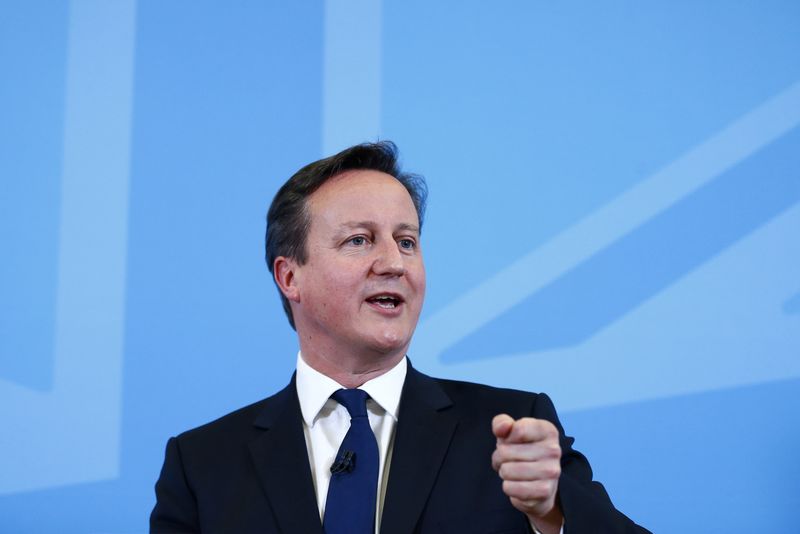By William James and Kylie MacLellan
LONDON (Reuters) - Britain's two main political parties accused each other on Tuesday of putting the future of the nation at risk as they drew battle lines over how to reform the constitution after Scotland's failed bid for independence.
A last-ditch promise to transfer powers to Scotland's devolved parliament from London helped swing a close referendum in September in favour of keeping the United Kingdom together, but that has awakened decades-old grievances over imbalances in the way laws are made in England.
At its heart is what is known as the "West-Lothian Question": why are Scottish parliamentarians allowed to vote on laws that only affect England when English lawmakers cannot vote on Scottish matters that are now decided in Edinburgh?
Both main parties agree on the need for constitutional change, but the opposition Labour, which has strong support in Scotland, has said the ruling Conservative's proposals could split the UK "by the back door".
The issue has emerged as a dividing line between the parties ahead of what is expected to be a tightly-contested national election in 2015, tapping into nationalist sentiment on both sides of the English-Scottish border.
Conservative Prime Minister David Cameron, whose voter base is largely located in England, wants to agree a cross-party plan to hand more independence to English lawmakers so that it can be implemented quickly whoever wins the 2015 election.
"The issue of fairness is strongly felt by people across the United Kingdom, and most intensely in recent months by people in England," said William Hague, the Conservative lawmaker in charge of managing the reforms.
"That issue has to be addressed ... and it is dangerous for the United Kingdom for it not to be addressed."
DIVISION
The Conservative party set out three options on Tuesday. They ranged from a ban on Scottish members of parliament voting on policies that do not apply to Scots, to giving English lawmakers a greater say in the lawmaking process or even a veto over such laws.
A YouGov poll in September found 72 percent of people in England backed preventing Scottish lawmakers from voting on issues that affect only England.
Labour, which is wary of undermining its strong support in Scotland, favours a slower, more consultative approach that would give voters a chance to air their views.
"What we must not do, only months after the Scottish people voted to keep our kingdom united, is allow the division of our country by the back door," said Labour spokesman Sadiq Khan.
"Nothing we do should jeopardise the future of the Union."
Labour has more Scottish lawmakers and restricting their influence in parliament could potentially leave a future Labour government without the votes needed to pass some laws.

The party favours giving greater power to English cities and regions, and has called for a constitutional convention to be held after the election to discuss the options.
(Editing by Robin Pomeroy)